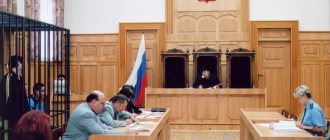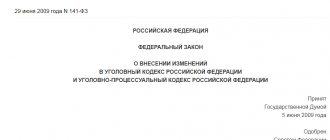New edition of Art. 292 Code of Criminal Procedure of the Russian Federation
1. The debate between the parties consists of speeches by the prosecutor and the defense attorney. In the absence of a defense lawyer, the defendant participates in the debate between the parties.
2. The victim and his representative may also participate in the debate between the parties. The civil plaintiff, civil defendant, their representatives, and the defendant have the right to petition for participation in the debate of the parties.
3. The sequence of speeches of the participants in the debate of the parties is established by the court. In all cases, the prosecutor comes first, and the defendant and his defense lawyer come last. The civil defendant and his representative speak in the debate between the parties after the civil plaintiff and his representative.
4. A participant in the debate between the parties does not have the right to refer to evidence that was not considered at the court hearing or was declared inadmissible by the court.
5. The court has no right to limit the duration of the parties' arguments. In this case, the presiding officer has the right to stop persons participating in the debate if they relate to circumstances that are not related to the criminal case under consideration, as well as evidence recognized as inadmissible.
6. After all participants in the debate have made speeches, each of them can speak one more time. The right of the last remark belongs to the defendant or his defense attorney.
7. The persons specified in parts one to three of this article, at the end of the debate of the parties, but before the court retires to the deliberation room, have the right to submit to the court in writing their proposed wording of decisions on the issues specified in paragraphs 1 to 6 of part one of Article 299 of this Code . The proposed language is not binding on the court.
Article 292 of the Code of Criminal Procedure of the Russian Federation. Contents and order of debate between the parties (current edition)
1. Judicial debates represent a stage of judicial proceedings at which the parties involved in the case, in oral presentations, express their position on the case, based on the results of the judicial investigation.
2. The defendant has the right to participate in judicial debates only on the condition that he refuses to have a defense attorney participate in the case. If the defense attorney is absent for other reasons (failed to appear at the court hearing, suddenly fell ill, etc.), the court must take measures to provide the defendant with another defense attorney in accordance with Art. 50 of this Code, if necessary, declaring a break in the court hearing or postponing the trial.
3. The victim has the right to speak in court arguments on behalf of the prosecution (clause 15, part 2, article 42). Part 2 of this article, in particular, states that a civil plaintiff, a civil defendant, and their representatives have the right to apply for participation in the debate of the parties. It should, however, be borne in mind that the civil plaintiff, civil defendant, as well as their representatives, by virtue of the direct instructions of the law (clause 15, part 4, article 44; clause 11, part 2, article 54) also have the right to act in judicial debates. Therefore, the court cannot refuse their petition.
4. Despite the fact that Part 3 of this article states that the sequence of speeches of the participants in the debates of the parties is established by the court, the discretion of the court in this matter is limited to the subsequent sentence, in which the sequence of participation of the parties in the debates is established quite strictly. The discretionary powers of the court to establish the sequence of speeches in the debates practically concern only those cases when several prosecutors, defenders, defendants, etc. are involved in the case. The commented article does not provide that the court establishes the sequence of speeches of several prosecutors, defense attorneys and other participants of the same name in the trial who have the right to speak in the debate of the parties, at their proposal. However, other things being equal, the court should listen to the views of the parties and take them into account when making a decision on this issue. As for the defenders, it is first advisable to give the opportunity to speak to those of them whose position, if expressed in the debate, may entail a worsening of the position of other defendants (for example, when one defendant incriminates another), since their defenders then have the opportunity to fend off arguments that have become known to them from the speech of a colleague who spoke earlier. In practice, the court usually hears the defenders of the perpetrators, then the organizers of the crime and after them - the defenders of those accomplices who played a less noticeable role in the commission of the crime.
5. The subject of speeches by the parties in judicial debates may be the assessment of evidence examined in the judicial investigation; legal assessment of procedural violations committed during the proceedings and their possible consequences; characteristics of the circumstances established in the trial; legal assessment of the circumstances of the case (qualification of the crime, conclusion about the innocence of the defendant); characteristics of the defendant's personality; considerations regarding the imposition of punishment or the possibility of releasing the defendant from criminal liability and punishment; considerations on issues related to a civil claim; coverage of the public significance of this case. Not all participants in legal proceedings speaking in the debate must give answers to all of the above questions in their speeches; this is the absolute responsibility of only the public prosecutor and defense attorney. A private prosecutor has the right, but is not obligated, to express to the court his opinion on the merits of the accusation, on the application of the criminal law and on the sentencing of the defendant in judicial debates (Part 5 of Article 321).
6. The content of the speeches of the participants in the debate of the parties is limited to certain limits. They do not have the right to refer to support their position: a) to evidence that was not examined during the judicial investigation, including scientific works on criminology and forensic examination; b) on evidence declared inadmissible by the court; c) to circumstances not related to the case under consideration. In these cases, the presiding officer must stop the participant in the judicial debate, drawing his attention to the inadmissibility of such actions. It seems that the presiding officer is also obliged to stop the participants in the debate if they use offensive or indecent expressions or threats against the participants in the proceedings; statements that can be qualified as a crime or an administrative offense (for example, incitement to national, racial or religious hatred, contempt of court, etc.).
Comment source:
Ed. A.V. Smirnova “COMMENTARY ON THE CRIMINAL PROCEDURE CODE OF THE RUSSIAN FEDERATION” (ARTICLE BY ARTICLE), 5th edition
SMIRNOV A.V., KALINOVSKY K.B., 2009
Commentary to Art. 292 of the Criminal Code of the Russian Federation
The main object of the crime is the normal activity of the public apparatus of power and management in the sphere of handling official documents. As an additional object of the crime provided for in Part 2 of Art. 292 of the Criminal Code of the Russian Federation, stand for the constitutional rights of man and citizen, economic and other interests of citizens, organizations and the state protected by law.
The subject of the crime is an official document - a written or other document emanating from state bodies, local governments, state and municipal institutions, management structures of the Armed Forces of the Russian Federation, other troops and military formations of the Russian Federation, granting certain rights, imposing duties or releasing them from them, or certifying legally significant facts or events. That is, an official document is a document that gives rise to certain legal consequences. Thus, in a specific case, the court indicated that statistical cards, as they do not establish any legal facts and do not entail legal consequences, cannot be recognized as official documents.
———————————
The Federal Law of July 27, 2006 N 149-FZ “On information, information technologies and information protection” (RG. 2006. July 29) defines the concept of an electronic document. An electronic document is an electronic message signed with an electronic digital signature or another analogue of a handwritten signature (Article 11). An electronic document is equivalent to a document signed with a handwritten signature, in cases where federal laws or other regulatory legal acts do not establish or imply a requirement to draw up such a document on paper. The concept of an electronic digital signature is disclosed in Art. 3 of the Federal Law of January 10, 2002 N 1-FZ “On Electronic Digital Signature” (RG. 2002. January 12).
Resolution of the Presidium of the Sverdlovsk Regional Court of May 29, 2002 // Bulletin of the Supreme Court of the Russian Federation. 2003. N 5. P. 15 - 16.
On the contrary, for example, decisions to initiate and terminate a criminal case certify such events and facts that have legal significance and entail legal consequences, in connection with which the introduction of knowingly false information into these documents by officials of internal affairs bodies out of other personal interest, expressed in the desire improving crime detection rates is official forgery, liability for which is provided for in Art. 292 of the Criminal Code of the Russian Federation.
Documents emanating from individuals, commercial and other organizations that are not a state or municipal institution (agreements, receipts, etc.) are not themselves official documents. At the same time, if such documents fall under the jurisdiction (paperwork) of the specified state (municipal) bodies or institutions, they should be recognized as official, since through the activities of the public apparatus of power and administration they acquire the properties of an official document; in addition, their distortion can complicate the performance of functions assigned to state or municipal structures.
An official document must have the necessary details (number, date, seal and other details depending on the nature of the document itself) and be signed by an authorized official. So, for example, making changes to the protocol on administrative detention does not constitute an official forgery, since the specified document is not official due to the absence of the necessary details in it - the signature of an official authorized to make decisions in cases of administrative offenses (see also the commentary to Art. 327 of the Criminal Code of the Russian Federation).
The objective side of the crime provided for in Part 1 of Art. 292 of the Criminal Code of the Russian Federation, can be carried out by one of the following actions: 1) entering knowingly false information into an official document; 2) introducing corrections into an official document that distort its actual content.
The introduction of knowingly false information into an official document occurs when information that does not correspond to reality is entered into a document that is genuine in its form (i.e., preserving all external details) (the so-called intellectual forgery). Also, this act can be expressed in putting false details on a document, for example, putting a date that does not correspond to the actual date of the document, or forging a signature on a document.
Making corrections to an official document that distort its actual content means erasing, adding to the original text, or performing other actions as a result of which the content and information load of the document changes (material forgery).
Official forgery occurs only in the case when the introduction of knowingly false information and corrections into a document is related to the official functions of the guilty person, i.e. carried out precisely in connection with the performance of his official duties. If an official or state (municipal) employee commits the same actions, but regardless of the opportunity available in the service, there is no corpus delicti of this crime. Under certain conditions, this act can be qualified under Art. 327 of the Criminal Code of the Russian Federation. The same article applies in the case when an official or state (municipal) employee performs the specified actions not in relation to an official document, which is such initially, regardless of the actions performed with it, but “works” with an ordinary document, making official document.
It should be taken into account that when deliberately false information is entered into official documents that are the basis for acquiring citizenship (for example, a residence permit), the act is qualified under Part 1 of Art. 292.1 of the Criminal Code of the Russian Federation as according to a special norm (Part 3 of Article 17 of the Criminal Code of the Russian Federation).
The corpus delicti under Part 1 of Art. 292 of the Criminal Code of the Russian Federation is formal. The crime is completed from the moment false information or corrections are entered into an official document that distort its actual content, regardless of whether such a document was subsequently used. The use of a forged document in the commission of any crime should be qualified based on the combination of official forgery with the corresponding crime (for example, from Articles 159, 160 of the Criminal Code of the Russian Federation). Forgery not promised in advance for the purpose of concealing theft committed by another person cannot be qualified as complicity in theft and is covered only by the elements of the crime provided for in Art. 292 of the Criminal Code of the Russian Federation.
Introducing false information or corrections into an official document for the purpose of its further use to commit a grave or especially grave crime constitutes a combination of official forgery and preparation for the corresponding grave or especially grave crime.
The subjective side of the crime provided for in Part 1 of Art. 292 of the Criminal Code of the Russian Federation, is expressed by guilt in the form of direct intent. The perpetrator is aware that he is introducing false information or corrections into an official document that distort its actual content, and wants to commit such actions. A mandatory sign of the subjective side is the motive of the crime - selfish or other personal interest (for the content of this sign, see the commentary to Article 285 of the Criminal Code of the Russian Federation). If official forgery is committed in the absence of selfish or other personal interest, then we can only talk about disciplinary, but not criminal liability.
The subject of the crime is special. He can be either an official or a civil servant or an employee of a local government body who is not an official.
Part 2 Art. 292 of the Criminal Code of the Russian Federation provides for liability for committing one of the actions specified in Part 1 of this article, the consequence of which was a significant violation of the rights and legitimate interests of citizens or organizations or legally protected interests of society or the state (for this consequence, see the commentary to Article 285 of the Criminal Code of the Russian Federation ). The analyzed corpus delicti is one of the material ones: a crime provided for in Part 2 of Art. 292 of the Criminal Code of the Russian Federation, ends from the moment the consequences occur in the form of a significant violation of the rights and legitimate interests of citizens or organizations or legally protected interests of society or the state. A direct cause-and-effect relationship must be established between the act and the consequence.
The subjective side of the crime provided for in Part 2 of Art. 292 of the Criminal Code of the Russian Federation, is characterized by guilt in the form of direct or indirect intent. A mandatory feature of the subjective side of a qualified crime is also the motive of the crime - selfish or other personal interest.




